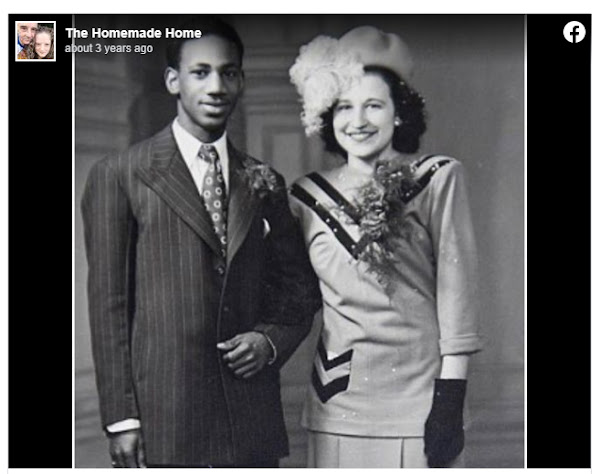70 years ago, in 1954, she was kicked out because she loved a black man. Now, see how things have changed for them.
Jake and Mary Jacobs marked 70 years of a joyful marriage last year, but the journey wasn’t simple.
In the 1940s in Britain, Mary, a White woman, and Jake, a Black man, lived in the same city. Jake was one of the few black men around.
Even though Mary’s father told her to leave, she stayed because she was in love with Jake and was determined to be with him.
“When I told my dad I was going to marry Jake, he said, ‘If you marry him, you won’t come back home.'”
Mary and Jake met at a technical college where Mary was learning typing and shorthand, and Jake was training in the Air Force. They crossed paths when Jake moved from Trinidad during the war.
Jake started talking to Mary, who lived in Lancashire. She liked that he understood Shakespeare.
Later, Jake and his friend invited Mary and her friend to a picnic. Unfortunately, a woman on a bike saw them and told Mary’s father. He was shocked to see his daughter with black guys and forbade her from visiting him again.
Jake and Mary Jacobs marked 70 years of a joyful marriage last year, but the journey wasn’t simple.
In the 1940s in Britain, Mary, a White woman, and Jake, a Black man, lived in the same city. Jake was one of the few black men around.
Even though Mary’s father told her to leave, she stayed because she was in love with Jake and was determined to be with him.
After Jake went back to Trinidad, they exchanged letters. A few years later, he came back to the UK for a higher-paying job.
Jake surprised Mary by proposing, and even though she was 19, she said yes. However, when she told her family, they kicked her out.
“I left with just a tiny suitcase. No family attended our simple wedding at the registry office in 1948.”
Mary shared that her father was shocked about her marrying a black man, and she didn’t realize that the rest of society shared similar sentiments.
The early years of our marriage in Birmingham were really tough. I cried every day and hardly ate. Nobody talked to us, and finding a place to live was hard because nobody would rent to a black man, and we had no money.
Even just walking down the street was hard because people would point at us, Mary said.
Mary got pregnant, and the couple felt happy about becoming parents. However, at 8 months, she had a stillborn child.
“It wasn’t because of the stress, but it really saddened me, and we never had more children,” she explained.
Things got better for them as Mary became a teacher and later an assistant principal in a British school, while Jake found a job at the Post Office. They made new friends, but Mary felt the need to mention that her husband was black before introducing him.
“My father passed away when I was 30, and even though we had reconciled by then, he never approved of Jake,” she mentioned.
Jake, aged 89, and Mary, aged 84, live in Solihull, a town south of Birmingham. They just celebrated 70 years of marriage.
Jake says he has no regrets, but he also believes that today’s black youth don’t fully grasp how life was for him in 1940s Britain.
“I faced abuse every day when I came to the UK. Once, on a bus, a man rubbed his hands on my neck, saying, ‘I wanted to see if the dirt would come off.’
“And at that time, working in an office wasn’t allowed because having a black man in an office with all the white girls was considered unsafe.”
Even with many challenges, prejudice, and mistreatment, the couple remains deeply in love and has no regrets about being married. They’ve been happily married for over 70 years.
They are truly inspiring, and I hope they continue to experience a lifetime of joy because of the love they




Commentaires
Enregistrer un commentaire